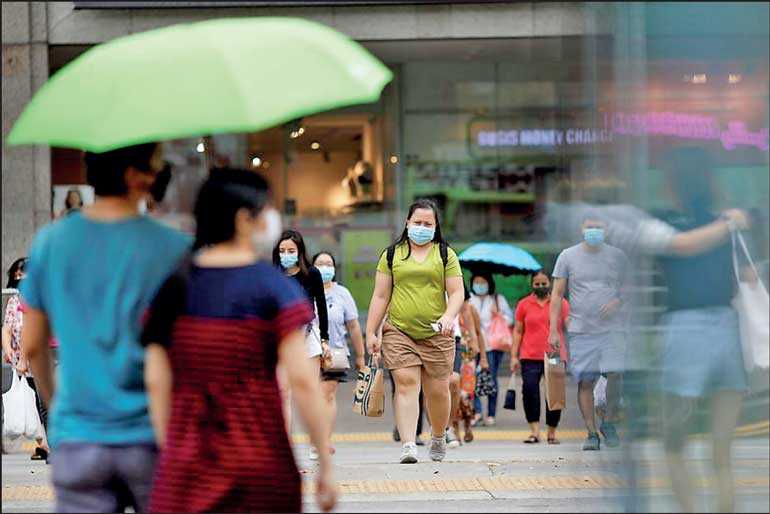Saturday Feb 21, 2026
Saturday Feb 21, 2026
Wednesday, 15 July 2020 00:00 - - {{hitsCtrl.values.hits}}

SINGAPORE (Reuters): Singapore’s economy suffered a record contraction in the second quarter, tipping it into recession and putting the trade-reliant city-state on course for its worst ever slump this year as the coronavirus outbreak extracts a heavy toll on business.
The grim numbers for the wealthy city-state, the first in Asia to report second-quarter GDP data, underscore the sweeping worldwide impact of the COVID-19 pandemic and suggest a rough first half for the global economy. Many major economies are already facing their steepest downturn in decades.
Gross domestic product (GDP) plunged by a record 41.2% in the three months ended March, on a quarter-on-quarter annualised basis, preliminary data from the Ministry of Trade and Industry showed on Tuesday, worse than economists’ expectations for a 37.4% decline in a Reuters poll.
The sectoral impact was broadbased with the services and construction sector hardest hit. Construction, which ground to a near halt, plummeted 95.6% on a quarter-on-quarter annualised seasonally-adjusted basis.
“We were expecting these numbers to look quite dismal, although this is worse than what we had expected,” said Steve Cochrane, economist at Moody’s Analytics.
On a year-on year basis, GDP dived 12.6% versus economists forecast for a 10.5% contraction.
The manufacturing sector grew 2.5% from a year ago, mainly due to a surge in output in biomedical sector, though that was still lower than the 8.2% rise in the first quarter.
The GDP slump marked the second consecutive quarter of contractions for the global finance hub - having declined a revised 0.3% year-on-year in the first quarter and 3.3% quarter-on-quarter - meeting the definition for a technical recession.
Analysts had expected a deep second-quarter contraction due to a lockdown between April and June, in which most workplaces closed to curb the spread of the virus.
The government expects full-year GDP to contract in the range of -7% to -4%, the biggest downturn in its history.
The central bank eased its monetary policy in March and has introduced measures to boost bank lending, while the government has pumped in nearly S$100 billion ($72 billion) worth of stimulus to blunt the impact of the pandemic.
The People’s Action Party, which extended its unbroken rule in last week’s election held in the midst of the pandemic, has said protecting Singaporean jobs is its biggest priority.
Analysts expect the economy to start improving as more business and services reopen, but warned of a bumpy road ahead.
“This will be marked as the bottom of the current downturn,” ING analysts said in a note.
“But persistent external uncertainty depressing exports and tourism provide no hope of a return to positive year-on-year GDP growth anytime soon, at least not over the rest of this year.”